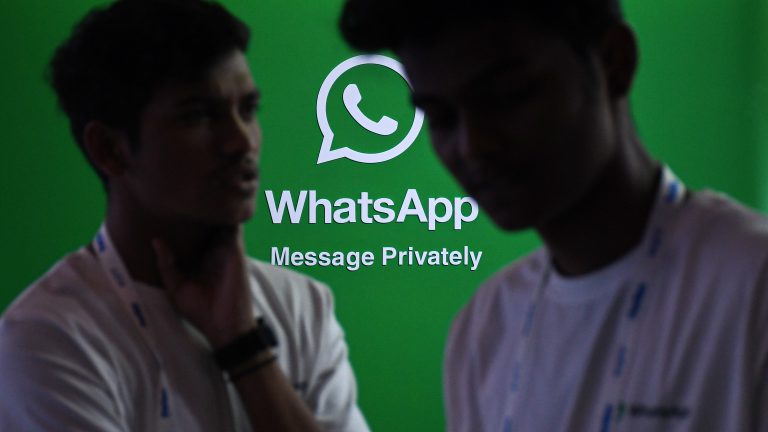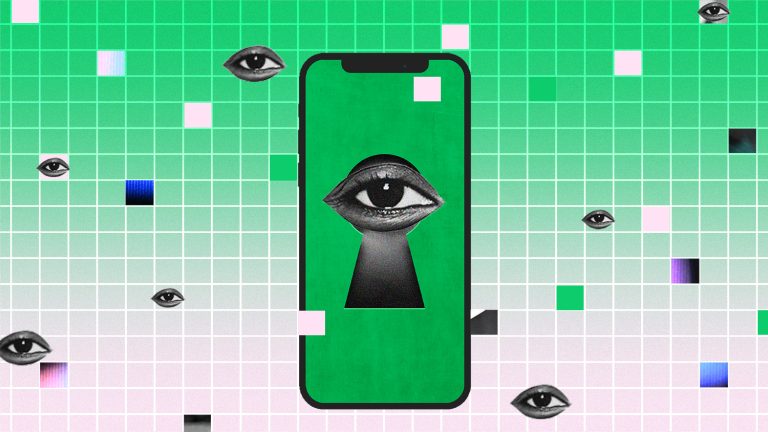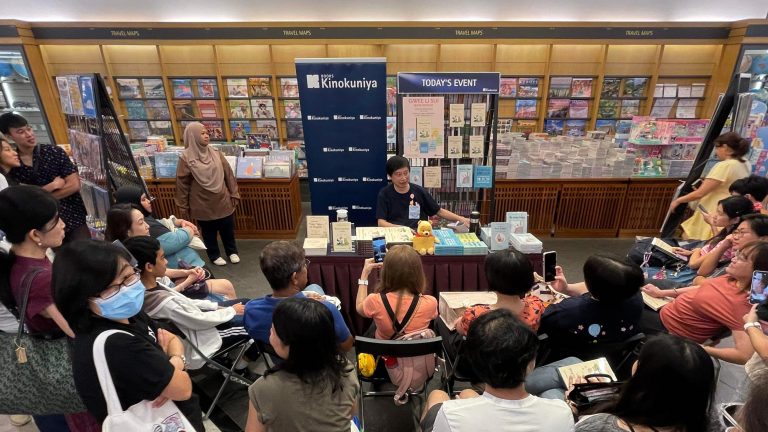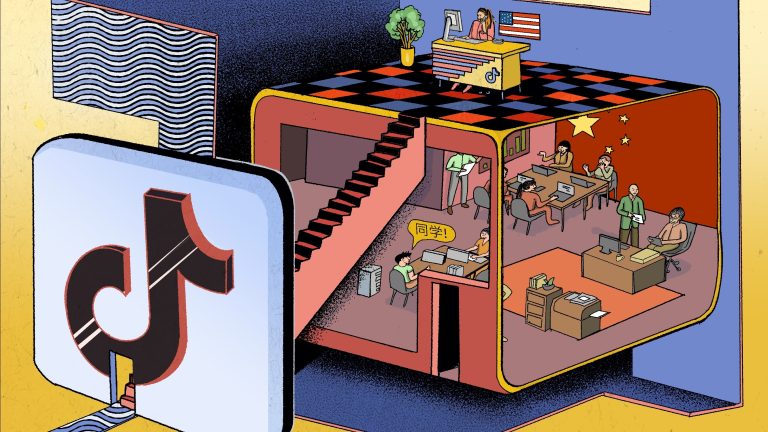On July 18, Aishwarya Rao, a long-time WhatsApp user, was at her wit’s end when she decided to take to Twitter. “First it was email, then it was SMS. Now it’s WhatsApp — can’t escape the spam,” Rao tweeted, expressing frustration about her favorite messaging app turning into a spam box.
That day, the first 10 messages on her WhatsApp were all boilerplate outreach from corporations, promoting products, deals, and discount coupons. Rao told Rest of World that she first began noticing business outreach messages on WhatsApp at the end of 2021, but, in the past six months, it has become incessant. Verified handles, bearing green check marks, from businesses such as shopping app Flipkart, retail chain Croma, delivery app Zepto, fashion store Lifestyle, insurance provider BankBazaar, and others are flooding her personal WhatsApp chats.
“I don’t remember giving explicit permission to most of these businesses [to reach out to me through WhatsApp]. Especially the store ones,” Rao told Rest of Word, over Twitter direct messages. “Since you typically have to provide a [mobile] number for billing purposes, they don’t ever ask you if they can use it to reach out to you on WhatsApp.”
Meta’s WhatsApp is wildly popular in India, with around 550 million users in the country. Over the past year, the company has aggressively expanded its WhatsApp Business services in the country, allowing brands to reach out to customers, offer support, receive payments, and even verify documents. Direct access to customers over WhatsApp is an exciting proposition for Indian businesses since a reported 80% of messages sent on the app are seen within five minutes, making the platform an incredibly more efficient outreach channel than email or SMS.
The unchecked rise of spam has, however, meant that the messaging platform that was once seen as a private and intimate space to communicate with friends and family now feels like a busy main street crowded with hawkers, at least 10 regular users of the app told Rest of World. “It’s honestly such a frustrating experience now that WhatsApp has its business section. It feels like harassment tbh,” Rao wrote to Rest of World. “WhatsApp doesn’t really feel very personal anymore. I wish there was a legal way to fight this.”
“Every fucking thing Zuck touches is forever ruined,” Deepak Mehta, who works in tech, shared his irritation on Twitter. “WhatsApp used to be so good. Now every 2nd message is from a random corporate account I never gave permission to spam my inbox. Fuck you, you slithering lizard.”
WhatsApp did not respond to specific questions on the rise of spam. “As we continue to connect people with the businesses they value most on WhatsApp, it’s important that messages sent through our service are helpful and expected,” a WhatsApp spokesperson said in an email statement to Rest of World. “We offer features and tools to give people control over their conversations and take action when businesses send messages they don’t want to receive. Our systems constantly incorporate sentiment and feedback shared with us to ensure the best possible user experience.”

The rise of WhatsApp spam can be traced to the launch of WhatsApp Business in India, and the opening up of its business API, which, starting this year, allowed companies to access WhatsApp’s cloud programming interface, and manage high volumes of chats on the app. WhatsApp makes money by charging businesses for every conversation they have with customers. Businesses can access this service directly or take the help of dozens of official business solution providers such as Haptik, Twilio, and Gupshup.
Yash Bhanage, a Mumbai-based confectioner, told Rest of World that using WhatsApp for customer service has drastically improved his revenue. Sending customized WhatsApp reminders has helped Bhanage reengage 20% of the users who had added products to their cart, but abandoned it without making the purchase. Similar reminders via email resulted in only about 8% of users changing their minds.
One rainy evening, Bhanage sent a well-timed personalized WhatsApp broadcast message to customers who had bought savory snacks in the past year. “Rainy days and Chaat go hand in hand 🌧️☔ ?” read the message, along with a food-craving GIF. In the next hour, Bombay Sweet Shop received 100 orders through WhatsApp, Bhanage said, generating a revenue of over 90,000 rupees ($1,090).
In 2020, WhatsApp said about 15 million in India use the WhatsApp Business app every month. Since then, aggressive sales have lured thousands more, making the free version of WhatsApp Business one of the top 30 most-downloaded apps in India.
Asis Panda, who used to build WhatsApp chatbots as the former design head of Haptik, told Rest of World that in early 2020, the bar for companies to gain access to the business API was incredibly high. “You would need to get a green tick without which you couldn’t send any notifications or any transaction,” Panda recalled. Tolerance for spam was quite low, and violations were punished with account suspensions. Businesses sending promotional messages were required to have procured explicit consent from users signing up for WhatsApp updates, with a visual element like a check box, and the option to opt out.
“WhatsApp used to be so good. Now every 2nd message is from a random corporate account I never gave permission to spam my inbox.”
But, as WhatsApp looks to aggressively monetize and scale its business solution, the guardrails have come off, and the biggest casualty of this has been user consent.
Early adopters in 2020 had check boxes for explicit opt-in from users. In July 2020, WhatsApp changed its policy and visual elements like check boxes were no longer required. Lately, fewer businesses are seen adhering to the opt-in design. “It feels … somewhere consent has become quite passive,” Panda said. In many cases, businesses are deliberately obscuring the stipulation about WhatsApp outreach in lengthy terms and conditions.
In September, this reporter received an unsolicited WhatsApp promotional message from online travel aggregator Pickyourtrail, offering a 40% discount on a Maldives resort. The reporter had neither heard of Pickyourtrail nor signed up for their service. On inquiry, it was found that Pickyourtrail had obtained the number when the reporter had booked a staycation through the credit card payment app, Cred, which curates travel deals by the platform. This is a classic instance of a “dark pattern,” where users are signed up to things they didn’t mean to, and consumers find it difficult to discern how their data is being collected, stored, or processed.
WhatsApp users Rest of World spoke to said that large enterprises such as Tata Neu, Flipkart, Reliance’s Ajio, and others are the most egregious spammers, especially ahead of the October e-commerce sale season.

In 2021, when Bombay Sweet Shop applied for a business API, WhatsApp “made us jump through hoops to get it,” Bhanage said. “Now it is open to everyone.” He acknowledged that there has been a rise in business spam, which could erode user trust. Yet, he said, promotional messages have to be pre-approved by WhatsApp’s AI before they are broadcast. A few months back, one of his marketing messages containing the words “chocolate bar” wasn’t approved as the system associated “bar” with an alcohol business, which is not allowed on WhatsApp Business.
WhatsApp preempted the spam problem, and had built-in features for users to block and report businesses instantly, Arjun V Paul, founder of Zoko, a startup that aids small businesses in using WhatsApp Business, told Rest of World. When a business initiates a WhatsApp message, the receiver gets a pop-up with the options to report, block, or continue. If many users start blocking or don’t initiate a conversation with the business, the quality rating of the phone number associated with the business drops, and they wouldn’t be able to upgrade their daily messaging limit.
But, for some users, the exercise of reporting spammers feels futile.
“I don’t see any change happening,” designer Panda, who has been blocking unsolicited WhatsApp Business messages for over a year now, said. “To me, informing WhatsApp that I didn’t sign up for this likely doesn’t have any repercussions.” In September, Panda reported 15 WhatsApp Business accounts.
Chittaranjan, another Indian WhatsApp user, highlighted that, despite responding “STOP” thrice in the chat, he continued receiving promotional messages from electronics retail chain, Croma.
In September, Balvinder Singh blocked the WhatsApp account of Domino’s Pizza, as it incessantly alerted him to enroll for their rewards program. “I feel WhatsApp is a private mode of communication, businesses sending me unsolicited messages is a breach of my privacy,” Singh told Rest of World, over Twitter messages. “Majority are businesses where I have never shared my number or signed up, secondly even if I have shared a number and categorically mentioned not to send WhatsApp, yet, they spam.” Singh has since reported 14 other verified WhatsApp Business accounts as spam.
Part of the problem is that “WhatsApp[’s] design has not caught up as fast as the business direction that they are taking,” Panda said. Many users are now demanding message categorization on WhatsApp — similar to Gmail — where business chats can be grouped under a promotions tab. “The trade-off WhatsApp Business is making is that they want more businesses to transact on WhatsApp, [but] without being held accountable,” Panda said.
Users feel frustrated, but are stuck using WhatsApp. “In India, I cannot say I will stop using WhatsApp because of spam,” said Panda, adding that his mother also can’t switch to a new app.
Some users said they struggle to maintain WhatsApp as a private space, and constantly feel the need to defend it from being taken over by spammers.
“WhatsApp is the Trump equivalent of a product,” Paul of Zoko said, about user dependence on WhatsApp. “When Trump said, ‘I could stand in the middle of Fifth Avenue and shoot somebody, and I wouldn’t lose any voters,’ that is the equivalent of WhatsApp. The retention is so high that they can literally get away with it.”



